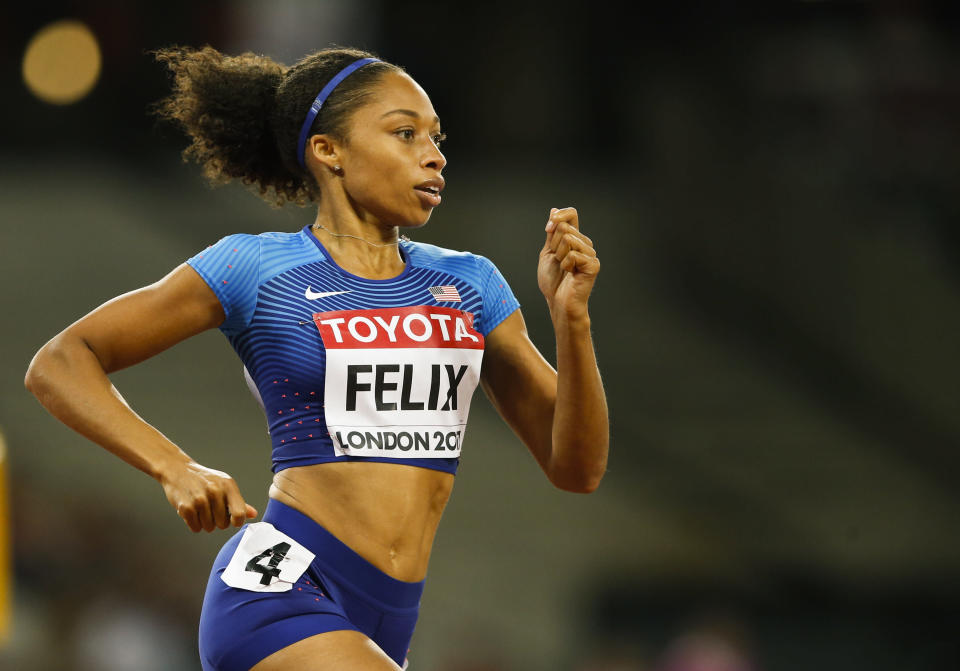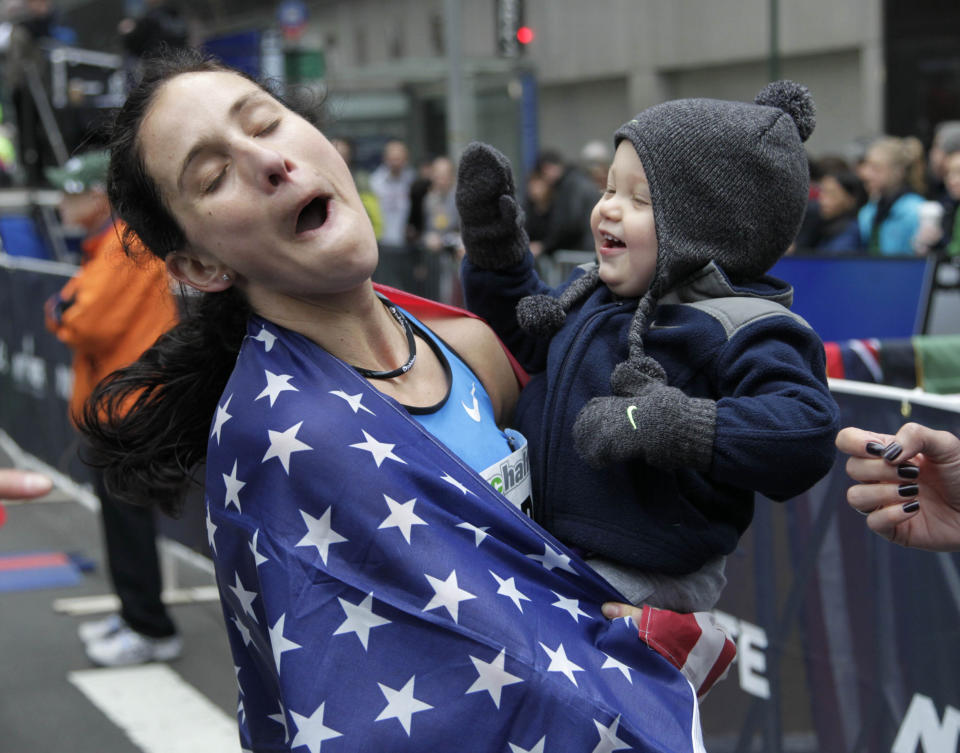Allyson Felix denounces Nike for failing to financially support athletes during pregnancy

Allyson Felix gave birth to her first child in November.
It was done via emergency C-section at 32 weeks because of a condition she says threatened her life and that of her then-unborn daughter.
On Wednesday, the 33-year-old six-time Olympic gold medalist sprinter opened up about how her pregnancy affected her relationship with her sponsor Nike in an Op-Ed in the New York Times.
She says the company that espouses progressive values in its marketing was far from supportive.
Felix: Nike declined to include pregnancy guarantee
Felix wrote that Nike put pressure on her to get back to training as soon as possible after her C-section and offered her a 70 percent pay cut in contract negotiations.
Athletes like Felix depend on sponsorships as their primary income.
She also wrote that she asked the apparel company to include guarantees that if her performance dropped in the aftermath of her pregnancy she wouldn’t be punished.
She says Nike declined, and she’s since been at a stalemate in her negotiations.
“I wanted to set a new standard,” Felix wrote. “If I, one of Nike’s most widely marketed athletes, couldn’t secure these protections, who could?”
Other runners critical of Nike
While Felix — one of America’s most decorated Olympians — is the most prominent athlete to air her grievances with Nike publicly, she’s not the first.
Sprinter Alysia Montaño criticized the company in another New York Times piece on May 12 for failing to ensure maternity leave or pay athletes during pregnancy. She said that she left Nike when told that she wouldn’t be paid until she started competing again.

Goucher’s difficult decision
Long-distance runner Kara Goucher told The Times that Nike told her in 2010 when she was pregnant that she wouldn’t be paid until she competed again.
After giving birth, her son got sick, and she faced a choice of training so she could earn a paycheck or staying with her son in the hospital. She chose to run.
“I felt like I had to leave him in the hospital, just to get out there and run, instead of being with him like a normal mom would,” Goucher told The Times. “I’ll never forgive myself for that.”
Nike’s response
The Times reported in the May 12 piece that Nike acknowledged that athletes in the past had seen their payments reduced because of pregnancy, but that it changed that approach in 2018.
The Times also obtained a 2019 Nike contract that notes the company can reduce athlete pay “for any reason” if they don’t meet their performance standards.
The Wall Street Journal reported on May 18 — six days after Goucher and Montaño were published in the Times — that Nike was adding language to its contracts to protect athlete pay during pregnancy.
Felix applauded that effort in her piece published Wednesday.
But she continued to hold Nike accountable for not living up to its lofty advertising messaging.
“My disappointment is not just with Nike, but with how the sports apparel industry at large treats female athletes. This isn’t just about pregnancy. We may stand behind the brands we endorse, but we also need to hold them accountable when they are marketing us to appeal to the next generation of athletes and consumers.”
More from Yahoo Sports:

